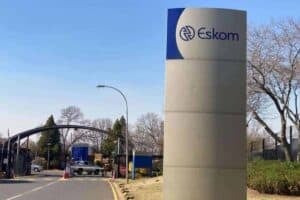Council plans to lower its electricity, water, sewerage and sanitation tariffs in an effort to avoid having the ANC take over again.

In an attempt to avoid a looming takeover by the ANC-controlled Gauteng provincial government, the Democratic Alliance-run City of Joburg yesterday announced several amendments to its R59 billion budget to appease opposition parties.
This follows last week’s rejection of the DA’s proposed tariff increases by 113 votes to 105, which left it unable to pass its budget on May 29, with the Economic Freedom Fighters (EFF) abstaining.
In terms of its constitution, the city has to pass the budget before the end of the municipal financial year in June, or face being placed under administration by the provincial government.
A special council sitting will be held next Monday to finalise the budget. This will include the Integrated Development Plan (IDP) for the same period.
Joburg mayor Herman Mashaba yesterday said the city was “making every effort to minimise tariff increases and reduce pressure on stressed household income while safeguarding the city’s ability to deliver services”.
Council plans to amend its electricity tariff to 7.17%, down from 7.37%, based on the application of the National Energy Regulator of South Africa (Nersa) municipal tariff guidelines applied on the Eskom increase of 6.84%.
Average tariff increases on water, sewerage and sanitation is to be reduced by 1% down to 13.2%, based on the Rand Water tariff increase of 12.2% and includes a 1% retail margin aimed at maintaining the distribution network.
“These amendments were provided to council at the last minute and we hope that will bring council closer to finalising the budget.”
Within the new budget, the city has “also taken steps to provide relief to he poorest communities,” Mashaba said. “We have increased the residential rates rebate from R200 000 to R350 000. This will reduce the impact of five years’ worth of property value increases and ensure that 191 000 households, at the lowest end of the market, will be exempt.”
The tariff on sanitation services for private dwellings of erf size up to and including 300m2 has also been reduced from the proposed R250 to about R196.
According to the budget, the highest allocation of free basic water would be provided to households earning no income, receiving up to 15 kilolitres of water per month and 150 kilowatt hours of electricity via the City’s Extended Social Package programme.
Lower levels of allocations are to range between 10 kilolitres of free water per month and 12 kilolitres of water provided “without charge”.
He said pensioners would receive a 100% property rebate if their income is lower than R9 245, and their property value is not more than R2.5 million. Those aged 70 and older will receive a 100% rebate, irrespective of income, with a property value of not more than R2.5 million.
“The city will also provide a 100% rebate to residents who are on the Expanded Social Package programme,” Mashaba said.
Where Jozi’s money goes
Some of the key highlights of the proposed Joburg City Council R59 billion budget for 2018 and 2019 will see the largest share going to roads, transport, housing, electricity and water.
- R120 million will go towards the provision of 200 serviced sites where beneficiaries will get full ownership.
- R14 million has been allocated for embarking on a consolidated planning programme for informal settlements.
- R50 million will be used for upgrading inner city emergency housing and rental stock.
- R60 million has been earmarked for the renewal and refurbishment of Diepkloof, Meadowlands, Helen Joseph and Madala hostels.
- R46 million will be used for the acquisition of buildings in the inner city to create affordable housing for residents.
- R117 million has been set for the electrification of informal settlements.
- R45 million for the installation of new public lighting city-wide, including informal settlements, as well as an additional R20 million for the repairs and maintenance of existing public lighting.
- Joburg Water is allocated a capital amount of R3.1 billion over the medium term and R10.6 billion in operating expenditure to reduce pipe bursts by 6 000 leaks.
- Pikitup is allocated a medium-term budget of R771 million, as well as R2.3 billion in operational expenditure. This will support additional cleaning shifts within the inner city. Pikitup’s operating budget will also go towards filling 1 400 vacancies in frontline service.
- R30 million has been set aside for operational expenditure in the departments of health and social development.
- R20 million goes to clinics.
- Public safety has been allocated R260 million for both Emergency Management Services (EMS) and the Joburg Metropolitan Police.
ALSO READ: Time running out for Mashaba
For more news your way, follow The Citizen on Facebook and Twitter.






